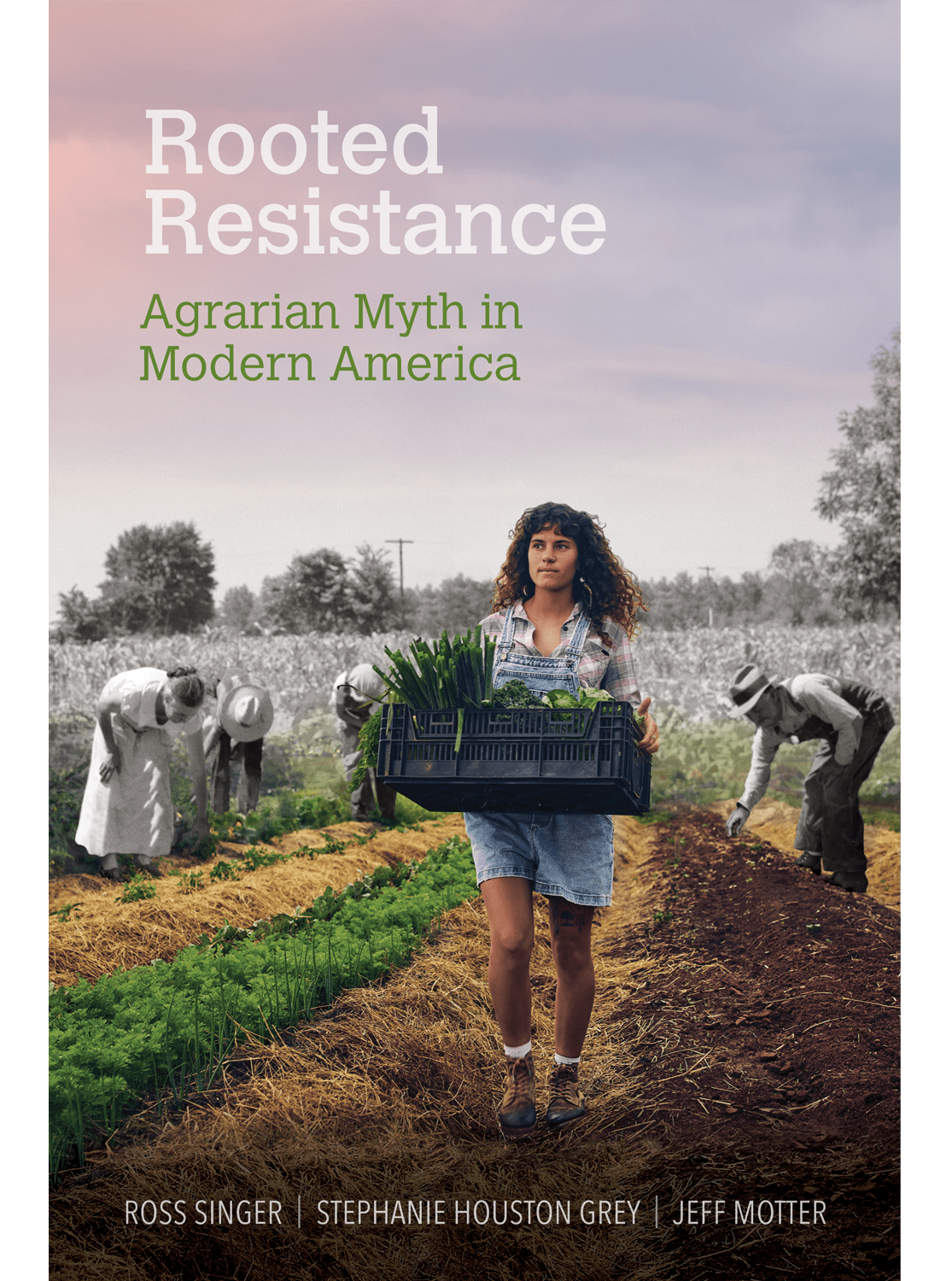Rooted Resistance: Agrarian Myth in Modern America by Ross Singer, Stephanie Houston Grey, and Jeff Motter has been reviewed by Christine da Rosa in the December 2021 issue of Rural Sociology.
“As a whole, this book offers a deep interdisciplinary analysis of agrarian myth in terms of its many applications and use to influence U.S. social and political climates. This work offers a useful contribution to the food discourse literature by framing agrarian myth as an implicit or deliberate narrative throughout U.S. history, capable of being mobilized and repurposed to advance equitable food justice. Equally so, the book’s modern case studies caution of how agrarian myth can be rebranded for corporate profit, showcasing how underlying democratic virtues and public memories surrounding the American yeoman farmer have been used to resist or ignore present inequality in the food system. Overall, Rooted Resistance: Agrarian Myth in Modern America is a valuable resource for a wide array of graduate-level courses including communication, political science, environmental justice, and sociology targeting the critical complexities of rural social movements. It may also be helpful for environmental justice community leaders and advocates seeking to revise or evaluate their organization’s discourse and use of agrarian myth.”
Through a careful examination of several case studies, Rooted Resistance traverses the ground of agrarian myth in modern America. The authors investigate key figures and movements in the history of modern agrarianism, including the World War I victory garden efforts, the postwar Country Life movement for the vindication of farmers’ rights, the Southern Agrarian critique of industrialism, and the practical and spiritual prophecy of organic farming put forth by J. I. Rodale. This critical history is then brought up to date with recent examples such as the contested South Central Farm in urban Los Angeles and the spectacular rise and fall of the Chipotle “Food with Integrity” branding campaign.
By examining a range of case studies, Singer, Grey, and Motter aim for a deeper critical understanding of the many applications of agrarian myth and reveal why it can help provide a pathway for positive systemic change in the food system.
Rural Sociology explores sociological and interdisciplinary approaches to emerging social issues and new approaches to recurring social issues affecting rural people and places. It is the journal of the Rural Sociological Society.

